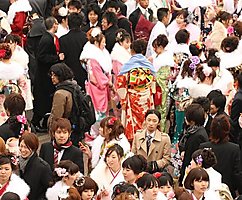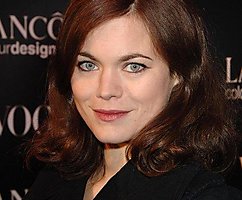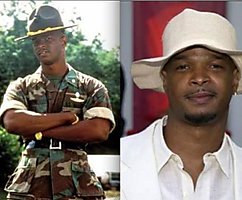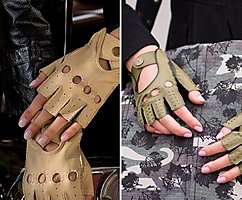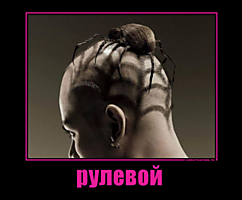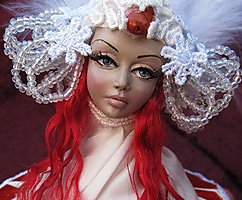What is the cause of the tragedy of Anna Karenina
 Bashny.Net
Bashny.Net
What is the cause of the tragedy of Anna Karenina in the famous novel by Leo Tolstoy? In this respect there are many points of view: there are those who believe that all the matter in the social conditions of that time, namely in the legal and social difficulty of divorce and the stigma of adultery; others say that the tragedy is that Anna on her way did a single person who would support it.What do you think about this a therapist, a priest and scholar.
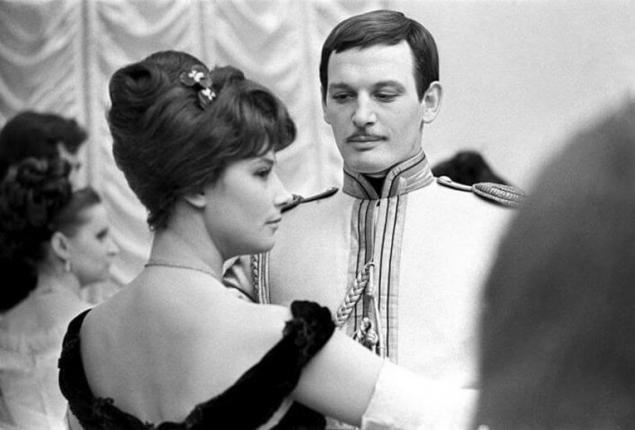
Svetlana Mardoyan, psychotherapist, existential analyst:
Recently I discovered the novel to refresh my memory of the storylines and the psychological aspect of the main characters. I wanted to understand Anna. After reading the text, I came to the conclusion that after all Anna was hysterical personality — if to speak about personal structure.
Emotional, absolutely blindly following their feelings, Anna to a certain extent reflects the spirit of the time when such behavior wasn't considered the norm, but was seen as something acceptable. But how to master their emotions, out of the question. Thus, the whole life of Anna Karenina is based on primary, spontaneously occurring, psychodynamic emotions completely raw, deep, personal. Her infantilism, inner immaturity was manifested not in the fact that it is these emotions experienced, and that she could not cope with them. So there was a big, strong feeling for Vronsky.
Actions and the internal world of the peoples is also very interesting to analyze. Personally, I saw it as an absolute of Narcissus. He was raised by his cold mother, a socialite as a narcissist. Tantrums and Narcissus is, in General, one of the classic combinations in a pair, each other, they attract. Daffodils after all, brilliantly looked after, put the whole world to the feet of the ladies and the tantrums love the attention and adoration. And Anna, like a butterfly, attracted the admiration, and gave herself to this feeling and went for Vronsky.
Partly she is really a victim of his time, because if their relationship happened a century later, it would be a completely banal story. And while emotional, hysterical, infantile woman who has no experience and ability to understand their feelings and was not a loved man who could keep and, in modern language, giving feedback, had no other choice. Kitty's, for example, was the family that supported it, maybe that's why she's recovered from his unhappy love. And for Anna it ultimately resulted in her death on the train tracks. Throwing a train — it's actually her last tantrum, affective act. Happened what happened, but the conditions of that time were not created for women like other way. Psychotherapy did not exist. She had something to finish.
I will say a little about what a hysterical personality structure. When psychologists talk about the hysteria, they don't mean exclusively shouting and weeping women, no. Emotional lability (Anna in the novel, sometimes crying, sometimes laughing), incontinence of emotion and demonstrative is only the manifestations of the hysterical personality structure. The main thing is the quality of her inner perplexity and the inability to endure suffering. Not to cry, and to bear their suffering. Despair implies a lack of formed, Mature I, internal structure, skill of quiet introspection, the ability to show wisdom and maturity.
But there is one caveat. Anna is married to Karenin, a man who was older than her. Not bad man, but rational, boring and, most importantly, it is not emotional. Due to the lack of contact with his feelings, he could not give these feelings to Anna, which, like all tantrums, living emotions and where you really need it. Of course, any human wants love, wants feelings, but tantrums are not able to manage their emotions. And when there is Vronsky, who is willing to Anna these feelings to give, to win her attentions, to live her emotions, she falls into this trap, the accumulated deficit of emotional breaks, and she has no power over him.
However, the relationship with Vronsky Anna also does not add up. Why? Anna says that even with him she's lonely. That's "alone" is about the inner loneliness of human being, which is until it the man has not filled anything from the outside. Narcissus Vronsky could not give Anna that it truly was filled, and she would not be able to take in fully. Why? Because of their large internal deficit and the lack of emotional connection with them, good Mature contact with them. It is about the "effect of a bottomless pit", when no matter how much you get, you still feel the deficit, still want more and more, the saturation does not occur.
The Anna and his children also shows her as a hysterical person. In the novel, shows how Anna loves her son Serezha of wedlock and suffers from separation from him and at the same time, completely indifferent to her daughter that she gave birth to Vronsky. Tantrums all the time split, cloven, he may be one and the same child and to love, and to repel.
If the person is deep and really loves his children, he loves them exactly, constantly, always. Tantrums and maybe one of their child to love and another is not love. It's such a shallow and resplendent, ambivalence.
Why Anna did not like the daughter? I have no ready answer, but I can speculate. With Karenin value and meaning of her marriage was a child, and your inner emotional deficiency Anna has partly compensated for the communication with this child she did have with him an emotional connection. Vronsky and Anna did not see the purpose and meaning to bear a child because she did not want to share its a great feeling to Vronsky with someone third. Child absolutely side, if I may say so, the product of their passion. So she didn't have such a joy from the birth of her daughter.
There is also a social thing: after all, secular society has condemned her for adultery, and the child is, say, a direct proof of this infidelity. And if she hadn't gotten pregnant, who knows how it would have been on. The daughter in a sense, become a hindrance in the life of Anna: she had to make decisions to change your life. Even her regrets that she was fat and ugly, the cause of which was a child — it is also the emotion of hysteria, showing superficiality.
To help a tantrum is only one way to find oneself. Another thing is that to say "find yourself" in terms of the time — this is pure theorizing, because then such a person as Anna, this would not have happened. Now therapists help to grow out of the infantile condition, to become a more Mature person.
If Anna was this way, she wouldn't bond with Vronsky, knowing, for example, that she will not be able to bear the consequences of this novel — the separation and condemnation from society, the loss of a child. Assessing the character of her husband, knowing the consequences of infidelity, she would not have gone for it. Or suppose I would, but then stoically survived all that happened as a consequence of this novel.
And under the Thick premises the ending seems logical. Assume that Anna and Vronsky live happily ever after, somehow not in the spirit of the characters themselves. Not in the spirit of Anne — uneven, not to meet what is, and not finding happiness in what we have. But where to go? To grieve is typical of the time. In today's environment the end would be different, I think, is not so tragic.
Priest Ilya Shugaev, rector of the Church of the Archangel Michael in the city of Taldom of Moscow oblast, the author of the book "once and for life. The conversation about marriage for high school students":
If you put the question that brought Anna Karenina to suicide — personal responsibility or environment that is "stuck", then, from a Christian point of view, the answer is clear: the man is personally responsible for all their actions. Even when it acts, it is the inner freedom to make a decision.
If after a few years of marriage the first heat of love has passed, and there is a temptation on the side, it is not a question of choosing between "love" and "dislike" her momentary passion and can not be, because it grows after years thanks to a mutual effort of husband and wife in marriage. It is a question of managing your feelings and emotions.
Can a person manage their feelings and emotions? Christianity says Yes. Of course, feelings is difficult to manage, but it is possible, and the examples are many. It says all Christian asceticism. Pushkin's Tatyana in "Eugene Onegin" can manage their feelings. Only need effort from the person and the help of God. Anna is very confused in his feelings and his life and then he is clearly sinful, then there is a wrong act (sin — this is the error), which leads to such tragic consequences.
Irina G. Mineralova, literary critic, doctor of Philology, Professor of Russian literature, Moscow state pedagogical University, teacher:
What Leo Tolstoy novel "Anna Karenina"? As the title of the book made it "Anna Karenina", not "Problems of the age" or "Family in the 70-ies of the XIX century", not "Karenina", it means that the woman question is the main. The era that Tolstoy describes, very difficult, and not because then the woman was enslaved, and because increasingly there was a question of emancipation. However, when Tolstoy asked the question, what actually he wanted to say his piece, he replied that the explanation he would have again to write a novel.
So they raised the question not only of emancipation, family problems of the nobility or the problems of a particular era. Tolstoy explores human nature, women's nature and raises the question: with such a strong and vivid nature is to stay inside the spiritual space? Artistic means he solves the problem of the confrontation of flesh and spirit, flesh and soul. And it is not "Madame Bovary" "Madame Bovary" by Gustave Flaubert, without any indication of the privilege in the name of...
Not by chance in the parallel Anna Karenina, Tolstoy gives the image of Vronsky's horse, Frou - Frou. If you read carefully, as it describes Anna as he describes the horse we can see the ongoing writer parallel. But nature is a beautiful animal and the nature of man is not the same thing. This question of nature and the animal nature of man, created in the image and likeness of God, tormented Tolstoy more other issues.
Another reversal is, of course, the internal dialogue of Tolstoy and Pushkin, with his "Eugene Onegin", his Tatiana, which is "given to another and will never leave him". In "Anna Karenina" Tolstoy as if prescribes the continuation of the story: what would make Tatiana a different choice. As we know, Tatyana gives Onegin a rebuke, whereas in Anna say, first of all, the flesh or, perhaps, not only the flesh but of the nature. It is the nature directs Anna. It is extremely impulsive. Yes, she fell in love, but because if you get married, you uspevaesh Cup to the bottom — and joys, and hardships. However, the age is such that she doesn't want (and probably can not) to humble his nature to what is already inscribed in God's Providence.
But even after the desire of Anna to live with Vronsky satisfied and, apparently, you can live the attraction of nature, love, however, goes. Passion raging will always be to leave, and then what will be left in return? Today, these issues may be more acute because of the media and modern literature propose to live nature, the needs of the flesh, not wondering nor society — the opinion now generally very few people care or sense of duty.
Yes, there is such a thing as a passion, but there is a duty to the person with whom you are connected not only by some written document, but also God's establishment, and finally, his child, to whom you can cause suffering. How to do so, to establish family harmony? What is the way out of this situation? Tolstoy was always tormented by this "idea family". Karenin in the novel, not an angel, but Vronsky is not an angel, so, Hannah is not between "good" and "bad" man, and between the ego and the salvation of the family. And in order to be the Savior of the family, the woman should be the inner core
Alas, in this era, in the 70-ies of the XIX century, a sense of internal debt, which should be the norm, it ceases to be the most influential. A decade earlier Ostrovsky wrote "the Storm", and Bowker calls her "a ray of light in the darkness". Today, when we read this piece, we wonder: what is the beam of light?! If you're married, if you love your husband, where you are torn from the family to the first? Who is to blame? From the family of Catherine really has the love gone, but I can't justify it for a minute. If you're married, you can't do that — you are responsible for the person with whom you wedded, you in front of him in response. Even Anna Karenina can still be somehow justified because she is infatuated with Vronsky, but Katherine, then rushes to the first comer. In its history there is no question about true faith in God in her sheer superstition, poetic perception of the world, immaturity.
Tikhon shouted: "you, mother, killed him." You could say that. But it's actually not quite so. That was the era that liked to shift responsibility to the environment, saying that "environment zaela". But where are you in this environment? You're also part of the environment! But this understanding already then somehow goes away. Turgenev in "Fathers and children" says that a salutary thought family, and every destruction is detrimental to women first and foremost.
Turgenev in "Fathers and children" says that a salutary thought family, and every destruction is detrimental to women first and foremost.
Anna wants to live feelings. She is sincere, she is sensual and passionate. But what would a high intellect you are, no matter how fine mental organization may possess, if you speak from passion, it will destroy you. Passion for a long time can not live. Passion needs to be attraction of course, but one that is not confined to love.
Vronsky is also a passionate person. Of course he fascinated with Anne, he wrote her portrait (but not only) — and it is an interesting and important detail, which the author explains the psychological movements of the characters. He admires her. But this admiration comes to an end, it is tiring. Passion comes in, captivates and envelops, separates man from the rest of the world. But when the world is in a kind of harmony, this passion may seem unnatural, false, even deceitful, and people may be ashamed of the fact that it suddenly broke out such a strong voice of flesh.
Tolstoy says that if you only go after your passion, it opens the abyss. Today, this issue seems to be particularly acute. It would be good with each girl to talk about it, especially when it comes to choice. Talk to her and warn: "And you know that will not always be like today, in the moment of love? And then the time will come when you'll have to give in and sacrifice some of their interests, feelings. And not just to sacrifice and give, find joy, because you do it for a loved one." To pass through trials and temptations, as are the heroines of folk tales...
Love is sacrifice, and joyful sacrifice. Not always and not all at once unable to understand this yet you ought to grow. Sacrificial love for the Savior who so forgives every person who for the person dying, — such is the image that is given to us.
The family is a small Church. If we understand this, and if this girl inspired is one thing, but if it is suggested that you are the Princess, and the man, the husband should always serve you, it is quite another. Remember, Igor Severyanin: "It was by the sea, where openwork foam..."? The Queen, descending to the page. If we are imposed on these values, over which openly mocked ironic Northerner, then we will not be able to educate woman and wife.
If we talk about the way Karenina, it seems to me that it is the least to blame in this situation. He is what he is, he's not hiding and do not pretend to be the perfect man, and after marriage became a beast. Not at all. If you blame him, then we are back to the point of view of "stuck."
On the other hand, the person caring and the person who was the lawful spouse is, of course, different people. But marriage is always about two. Both are building a relationship, and both contribute to the Treasury, are both responsible for what those relationships eventually become, both equally share joy and misfortune. No matter how we characterized negatively Karenina and his requirements, he is still willing to take the child from Anna, Vronsky, and forgive her everything. He can forgive — she doesn't want! It still says the flesh. Therefore, you can certainly draw his caricature, as in the Soviet film directed by Alexander Zarkhi, but to draw her caricature.
I wonder what Anna loves the son Serezha and hates the daughter. After all, children are the fruit of love. And, it would seem, the fruit of passion Anna should love more, but Tolstoy writes differently. Apparently, the thing is that this child is stopping this young passion, gives Anna the inconvenience, forcing you to pay the attention that she would give only to Vronsky. And it shows how nature is selfish.
Anna strong internal conflict: she can't reconcile the duty and passion, love for the child love for Vronsky, it is not whole kind, in contrast to Tatiana. It is an internal disorder, the abuse is invisible in her soul. She can't hear your voice of conscience, the thread connecting with God that could save her. But Tolstoy, of course, was not the condemnation of Anna. He who is without sin, let him first cast a stone, remember? Anna Sudie have another, more impartial than we are. This novel was not written to condemn anyone, but to understand ourselves. Like Flaubert: "Madame Bovary is me!" It is a kind of psychological training for everyone — both women and men.
Tolstoy thinks not only over the fate of women but also on children's lives. Not by chance, he writes "Anna Karenina" when engaged in the Yasnaya Polyana school and children's issues.
Anna decided to die, leaving this world of children who are vitally and spiritually connected to her. But her son Seryozha and her daughter will make from your childhood? Whatever you say, when that happens in the family, it is scrapped and a large wound, even if with time she will calm down. Therefore, this novel is about women's responsibility to children.
Generally, the "three deeds God requires from man: faith, feat love, feat work," just simply, we can say ... And the most natural things are FEAT, which we can't. Maybe today more than ever the importance of this conversation. Talking about the path to happiness...
P. S. And remember, just changing your mind - together we change the world! ©
Source: thezis.ru/v-chem-prichina-tragedii-annyi-kareninoy.html

Svetlana Mardoyan, psychotherapist, existential analyst:
Recently I discovered the novel to refresh my memory of the storylines and the psychological aspect of the main characters. I wanted to understand Anna. After reading the text, I came to the conclusion that after all Anna was hysterical personality — if to speak about personal structure.
Emotional, absolutely blindly following their feelings, Anna to a certain extent reflects the spirit of the time when such behavior wasn't considered the norm, but was seen as something acceptable. But how to master their emotions, out of the question. Thus, the whole life of Anna Karenina is based on primary, spontaneously occurring, psychodynamic emotions completely raw, deep, personal. Her infantilism, inner immaturity was manifested not in the fact that it is these emotions experienced, and that she could not cope with them. So there was a big, strong feeling for Vronsky.
Actions and the internal world of the peoples is also very interesting to analyze. Personally, I saw it as an absolute of Narcissus. He was raised by his cold mother, a socialite as a narcissist. Tantrums and Narcissus is, in General, one of the classic combinations in a pair, each other, they attract. Daffodils after all, brilliantly looked after, put the whole world to the feet of the ladies and the tantrums love the attention and adoration. And Anna, like a butterfly, attracted the admiration, and gave herself to this feeling and went for Vronsky.
Partly she is really a victim of his time, because if their relationship happened a century later, it would be a completely banal story. And while emotional, hysterical, infantile woman who has no experience and ability to understand their feelings and was not a loved man who could keep and, in modern language, giving feedback, had no other choice. Kitty's, for example, was the family that supported it, maybe that's why she's recovered from his unhappy love. And for Anna it ultimately resulted in her death on the train tracks. Throwing a train — it's actually her last tantrum, affective act. Happened what happened, but the conditions of that time were not created for women like other way. Psychotherapy did not exist. She had something to finish.
I will say a little about what a hysterical personality structure. When psychologists talk about the hysteria, they don't mean exclusively shouting and weeping women, no. Emotional lability (Anna in the novel, sometimes crying, sometimes laughing), incontinence of emotion and demonstrative is only the manifestations of the hysterical personality structure. The main thing is the quality of her inner perplexity and the inability to endure suffering. Not to cry, and to bear their suffering. Despair implies a lack of formed, Mature I, internal structure, skill of quiet introspection, the ability to show wisdom and maturity.
But there is one caveat. Anna is married to Karenin, a man who was older than her. Not bad man, but rational, boring and, most importantly, it is not emotional. Due to the lack of contact with his feelings, he could not give these feelings to Anna, which, like all tantrums, living emotions and where you really need it. Of course, any human wants love, wants feelings, but tantrums are not able to manage their emotions. And when there is Vronsky, who is willing to Anna these feelings to give, to win her attentions, to live her emotions, she falls into this trap, the accumulated deficit of emotional breaks, and she has no power over him.
However, the relationship with Vronsky Anna also does not add up. Why? Anna says that even with him she's lonely. That's "alone" is about the inner loneliness of human being, which is until it the man has not filled anything from the outside. Narcissus Vronsky could not give Anna that it truly was filled, and she would not be able to take in fully. Why? Because of their large internal deficit and the lack of emotional connection with them, good Mature contact with them. It is about the "effect of a bottomless pit", when no matter how much you get, you still feel the deficit, still want more and more, the saturation does not occur.
The Anna and his children also shows her as a hysterical person. In the novel, shows how Anna loves her son Serezha of wedlock and suffers from separation from him and at the same time, completely indifferent to her daughter that she gave birth to Vronsky. Tantrums all the time split, cloven, he may be one and the same child and to love, and to repel.
If the person is deep and really loves his children, he loves them exactly, constantly, always. Tantrums and maybe one of their child to love and another is not love. It's such a shallow and resplendent, ambivalence.
Why Anna did not like the daughter? I have no ready answer, but I can speculate. With Karenin value and meaning of her marriage was a child, and your inner emotional deficiency Anna has partly compensated for the communication with this child she did have with him an emotional connection. Vronsky and Anna did not see the purpose and meaning to bear a child because she did not want to share its a great feeling to Vronsky with someone third. Child absolutely side, if I may say so, the product of their passion. So she didn't have such a joy from the birth of her daughter.
There is also a social thing: after all, secular society has condemned her for adultery, and the child is, say, a direct proof of this infidelity. And if she hadn't gotten pregnant, who knows how it would have been on. The daughter in a sense, become a hindrance in the life of Anna: she had to make decisions to change your life. Even her regrets that she was fat and ugly, the cause of which was a child — it is also the emotion of hysteria, showing superficiality.
To help a tantrum is only one way to find oneself. Another thing is that to say "find yourself" in terms of the time — this is pure theorizing, because then such a person as Anna, this would not have happened. Now therapists help to grow out of the infantile condition, to become a more Mature person.
If Anna was this way, she wouldn't bond with Vronsky, knowing, for example, that she will not be able to bear the consequences of this novel — the separation and condemnation from society, the loss of a child. Assessing the character of her husband, knowing the consequences of infidelity, she would not have gone for it. Or suppose I would, but then stoically survived all that happened as a consequence of this novel.
And under the Thick premises the ending seems logical. Assume that Anna and Vronsky live happily ever after, somehow not in the spirit of the characters themselves. Not in the spirit of Anne — uneven, not to meet what is, and not finding happiness in what we have. But where to go? To grieve is typical of the time. In today's environment the end would be different, I think, is not so tragic.
Priest Ilya Shugaev, rector of the Church of the Archangel Michael in the city of Taldom of Moscow oblast, the author of the book "once and for life. The conversation about marriage for high school students":
If you put the question that brought Anna Karenina to suicide — personal responsibility or environment that is "stuck", then, from a Christian point of view, the answer is clear: the man is personally responsible for all their actions. Even when it acts, it is the inner freedom to make a decision.
If after a few years of marriage the first heat of love has passed, and there is a temptation on the side, it is not a question of choosing between "love" and "dislike" her momentary passion and can not be, because it grows after years thanks to a mutual effort of husband and wife in marriage. It is a question of managing your feelings and emotions.
Can a person manage their feelings and emotions? Christianity says Yes. Of course, feelings is difficult to manage, but it is possible, and the examples are many. It says all Christian asceticism. Pushkin's Tatyana in "Eugene Onegin" can manage their feelings. Only need effort from the person and the help of God. Anna is very confused in his feelings and his life and then he is clearly sinful, then there is a wrong act (sin — this is the error), which leads to such tragic consequences.
Irina G. Mineralova, literary critic, doctor of Philology, Professor of Russian literature, Moscow state pedagogical University, teacher:
What Leo Tolstoy novel "Anna Karenina"? As the title of the book made it "Anna Karenina", not "Problems of the age" or "Family in the 70-ies of the XIX century", not "Karenina", it means that the woman question is the main. The era that Tolstoy describes, very difficult, and not because then the woman was enslaved, and because increasingly there was a question of emancipation. However, when Tolstoy asked the question, what actually he wanted to say his piece, he replied that the explanation he would have again to write a novel.
So they raised the question not only of emancipation, family problems of the nobility or the problems of a particular era. Tolstoy explores human nature, women's nature and raises the question: with such a strong and vivid nature is to stay inside the spiritual space? Artistic means he solves the problem of the confrontation of flesh and spirit, flesh and soul. And it is not "Madame Bovary" "Madame Bovary" by Gustave Flaubert, without any indication of the privilege in the name of...
Not by chance in the parallel Anna Karenina, Tolstoy gives the image of Vronsky's horse, Frou - Frou. If you read carefully, as it describes Anna as he describes the horse we can see the ongoing writer parallel. But nature is a beautiful animal and the nature of man is not the same thing. This question of nature and the animal nature of man, created in the image and likeness of God, tormented Tolstoy more other issues.
Another reversal is, of course, the internal dialogue of Tolstoy and Pushkin, with his "Eugene Onegin", his Tatiana, which is "given to another and will never leave him". In "Anna Karenina" Tolstoy as if prescribes the continuation of the story: what would make Tatiana a different choice. As we know, Tatyana gives Onegin a rebuke, whereas in Anna say, first of all, the flesh or, perhaps, not only the flesh but of the nature. It is the nature directs Anna. It is extremely impulsive. Yes, she fell in love, but because if you get married, you uspevaesh Cup to the bottom — and joys, and hardships. However, the age is such that she doesn't want (and probably can not) to humble his nature to what is already inscribed in God's Providence.
But even after the desire of Anna to live with Vronsky satisfied and, apparently, you can live the attraction of nature, love, however, goes. Passion raging will always be to leave, and then what will be left in return? Today, these issues may be more acute because of the media and modern literature propose to live nature, the needs of the flesh, not wondering nor society — the opinion now generally very few people care or sense of duty.
Yes, there is such a thing as a passion, but there is a duty to the person with whom you are connected not only by some written document, but also God's establishment, and finally, his child, to whom you can cause suffering. How to do so, to establish family harmony? What is the way out of this situation? Tolstoy was always tormented by this "idea family". Karenin in the novel, not an angel, but Vronsky is not an angel, so, Hannah is not between "good" and "bad" man, and between the ego and the salvation of the family. And in order to be the Savior of the family, the woman should be the inner core
Alas, in this era, in the 70-ies of the XIX century, a sense of internal debt, which should be the norm, it ceases to be the most influential. A decade earlier Ostrovsky wrote "the Storm", and Bowker calls her "a ray of light in the darkness". Today, when we read this piece, we wonder: what is the beam of light?! If you're married, if you love your husband, where you are torn from the family to the first? Who is to blame? From the family of Catherine really has the love gone, but I can't justify it for a minute. If you're married, you can't do that — you are responsible for the person with whom you wedded, you in front of him in response. Even Anna Karenina can still be somehow justified because she is infatuated with Vronsky, but Katherine, then rushes to the first comer. In its history there is no question about true faith in God in her sheer superstition, poetic perception of the world, immaturity.
Tikhon shouted: "you, mother, killed him." You could say that. But it's actually not quite so. That was the era that liked to shift responsibility to the environment, saying that "environment zaela". But where are you in this environment? You're also part of the environment! But this understanding already then somehow goes away. Turgenev in "Fathers and children" says that a salutary thought family, and every destruction is detrimental to women first and foremost.
Turgenev in "Fathers and children" says that a salutary thought family, and every destruction is detrimental to women first and foremost.
Anna wants to live feelings. She is sincere, she is sensual and passionate. But what would a high intellect you are, no matter how fine mental organization may possess, if you speak from passion, it will destroy you. Passion for a long time can not live. Passion needs to be attraction of course, but one that is not confined to love.
Vronsky is also a passionate person. Of course he fascinated with Anne, he wrote her portrait (but not only) — and it is an interesting and important detail, which the author explains the psychological movements of the characters. He admires her. But this admiration comes to an end, it is tiring. Passion comes in, captivates and envelops, separates man from the rest of the world. But when the world is in a kind of harmony, this passion may seem unnatural, false, even deceitful, and people may be ashamed of the fact that it suddenly broke out such a strong voice of flesh.
Tolstoy says that if you only go after your passion, it opens the abyss. Today, this issue seems to be particularly acute. It would be good with each girl to talk about it, especially when it comes to choice. Talk to her and warn: "And you know that will not always be like today, in the moment of love? And then the time will come when you'll have to give in and sacrifice some of their interests, feelings. And not just to sacrifice and give, find joy, because you do it for a loved one." To pass through trials and temptations, as are the heroines of folk tales...
Love is sacrifice, and joyful sacrifice. Not always and not all at once unable to understand this yet you ought to grow. Sacrificial love for the Savior who so forgives every person who for the person dying, — such is the image that is given to us.
The family is a small Church. If we understand this, and if this girl inspired is one thing, but if it is suggested that you are the Princess, and the man, the husband should always serve you, it is quite another. Remember, Igor Severyanin: "It was by the sea, where openwork foam..."? The Queen, descending to the page. If we are imposed on these values, over which openly mocked ironic Northerner, then we will not be able to educate woman and wife.
If we talk about the way Karenina, it seems to me that it is the least to blame in this situation. He is what he is, he's not hiding and do not pretend to be the perfect man, and after marriage became a beast. Not at all. If you blame him, then we are back to the point of view of "stuck."
On the other hand, the person caring and the person who was the lawful spouse is, of course, different people. But marriage is always about two. Both are building a relationship, and both contribute to the Treasury, are both responsible for what those relationships eventually become, both equally share joy and misfortune. No matter how we characterized negatively Karenina and his requirements, he is still willing to take the child from Anna, Vronsky, and forgive her everything. He can forgive — she doesn't want! It still says the flesh. Therefore, you can certainly draw his caricature, as in the Soviet film directed by Alexander Zarkhi, but to draw her caricature.
I wonder what Anna loves the son Serezha and hates the daughter. After all, children are the fruit of love. And, it would seem, the fruit of passion Anna should love more, but Tolstoy writes differently. Apparently, the thing is that this child is stopping this young passion, gives Anna the inconvenience, forcing you to pay the attention that she would give only to Vronsky. And it shows how nature is selfish.
Anna strong internal conflict: she can't reconcile the duty and passion, love for the child love for Vronsky, it is not whole kind, in contrast to Tatiana. It is an internal disorder, the abuse is invisible in her soul. She can't hear your voice of conscience, the thread connecting with God that could save her. But Tolstoy, of course, was not the condemnation of Anna. He who is without sin, let him first cast a stone, remember? Anna Sudie have another, more impartial than we are. This novel was not written to condemn anyone, but to understand ourselves. Like Flaubert: "Madame Bovary is me!" It is a kind of psychological training for everyone — both women and men.
Tolstoy thinks not only over the fate of women but also on children's lives. Not by chance, he writes "Anna Karenina" when engaged in the Yasnaya Polyana school and children's issues.
Anna decided to die, leaving this world of children who are vitally and spiritually connected to her. But her son Seryozha and her daughter will make from your childhood? Whatever you say, when that happens in the family, it is scrapped and a large wound, even if with time she will calm down. Therefore, this novel is about women's responsibility to children.
Generally, the "three deeds God requires from man: faith, feat love, feat work," just simply, we can say ... And the most natural things are FEAT, which we can't. Maybe today more than ever the importance of this conversation. Talking about the path to happiness...
P. S. And remember, just changing your mind - together we change the world! ©
Source: thezis.ru/v-chem-prichina-tragedii-annyi-kareninoy.html
Tags
See also
The future of land - flood
Boys and girls: 11 differences
Changes to the people in the future
Coffee as a sleep aid
John Galliano
The children do not go on Kazbek to walk
Paradise White Sands Lencois Maranhenses
What's inside
How to work as a doctor on "ER"
